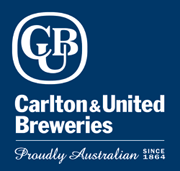
CUB looking to appoint Brand Bodyguard
We’re not sure exactly when it means, because they don’t want to tell us, but CUB is currently looking for a Brands Protection Manager to fight the parallel importing of their brands.
The position description for the new role reads as follows:
Drive our business to success!
 CUB generates significant volume and profit through the marketing and sales of a number of iconic international beer brands, including Corona, Stella Artois, Asahi and Carlsberg.
CUB generates significant volume and profit through the marketing and sales of a number of iconic international beer brands, including Corona, Stella Artois, Asahi and Carlsberg.
An opportunity has arisen for a talented, driven and highly commercial individual to take on the role of Brands Protection Manager. This challenging role will see you define and execute the strategy to address the impact of parallel imports on the CUB business and these important brands. Working closely with the CUB Sales, Marketing and Legal teams as well as the International Brand Owners, you will be responsible for developing and executing strategies and initiatives to protect the quality and reputation of the brands in Australia.
Degree qualified, you will possess extensive commercial experience within the FMCG industry in marketing, sales or general management roles. Resilient, proactive and forward thinking, you have demonstrated success in using your highly analytical and critical capabilities to define and execute business strategy. An autonomous operator, you are also adept at engaging and influencing senior business leaders and can build relationships to achieve win-win outcomes. Highly numerate, your ability to work across and facilitate activity cross functionally will ensure your success in the business critical role.
This is a high profile role, which reports to the Finance Director for CUB, but requires diplomacy and persistence dealing internally with all CUB departments, and externally with our international partners.
CUB has a simple vision – become the beer company loved by Australians! With more than 2000 employees across the globe, our products are sold in more than 155 countries. Our beer business is proud and passionate about producing, marketing and distributing the best beer portfolio in Australia. Our brands are at the heart of the great times and great experiences for our consumers and include Pure Blonde, Carlsberg, Carlton and Victoria Bitter – it’s no wonder CUB’s people enjoy exciting and diverse career opportunities!
Driven to succeed? Apply today.
Australian Brews News has repeatedly sought comment on both the issue of parallel imports and the new Brand Protection Role from Fosters. To date we are yet to receive a reply.
What we do know is that CUB owns the lucrative rights to brew a number of international premium brands under licence, including Stella and Kronenbourg, in Australia. There is also a lucrative and competing trade in importing the ‘authentic’ versions of these beers that CUB wants to stamp out for three main reasons. Firstly, it costs the company money – and lots of it – because they don’t see a cent of the revenue from the imports and it also reduces sales of their locally brewed version. Secondly, the imports are generally sold more cheaply than the licenced versions. This puts downward pressure on prices hurting CUB directly through lower prices and margins. It also hurts in the longer term by devaluing the brand and making it less premium in he consumer’s eye and less able to command premium prices. Finally, there can significant variability in the freshness and quality of these beers, which can further damage the brand.
When the company does deign to speak on the issue, it focuses on the last issue casting itself as the champion of quality control and consumer protection.
“We’ve always had a concern with parallel importing from a product integrity and quality perspective,” said a Foster’s Group spokesman, Troy Hey.
Beer sold via parallel importing had often been transported two to three times, which could lower the quality, he said
Mr Hey accused retailers that practised parallel importing of riding on the coat-tails of the official licensee in terms of marketing, support and advertising. The removal of product codes, which could trace the product to its source, could also compromise public safety, for example in the case of a product recall.
However, more compelling reasons can be found in the company’s engagingly titled 2011 Financial Results For the 6 months ended 31 December 2010. Incorporating the requirements of Appendix 4D, which advises:
The decline in net sales revenue per case for international premium brands reflects CUB’s pricing re-alignment in the second half of fiscal 2010 to mitigate the exchange rate driven increase in parallel imports. CUB’s pricing re-alignment has reduced the prevalence of parallel imports with the impact of lower net sales revenue per case on EBITS largely offset by increased volume and lower cost of sales.
At Australian Brews News we’re not fluent in corporate financial obfuscation and jargonese, but I think this roughly translates as:
“Brewed-under-licence beer was much less lucrative for us than it should have been in the second half of last year because we had to lower prices to compete with the parallel imported versions which were much cheaper due to a ripping exchange rate. Because we have actually been competing on price, there have been fewer parallel imports about but it has also meant that we made less on every carton but, then again, the stuff was so cheap that it walked out the door without us having to spent much on advertising, so it almost balanced out.”
In any event, there are likely to be interesting times ahead in the world of parallel imports once Foster’s Brand Bodyguard rides into town.



